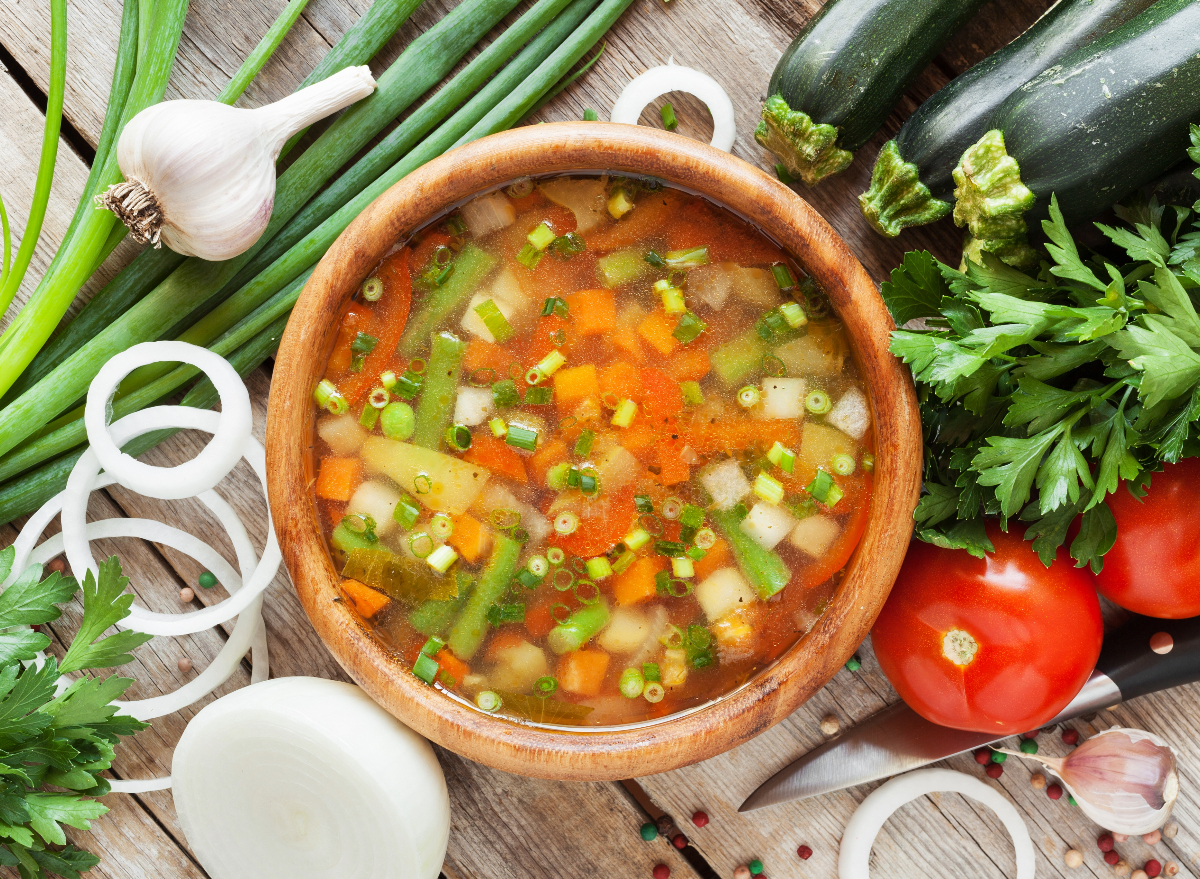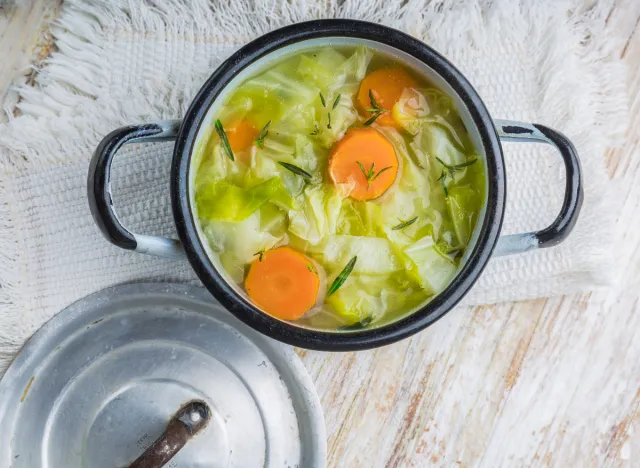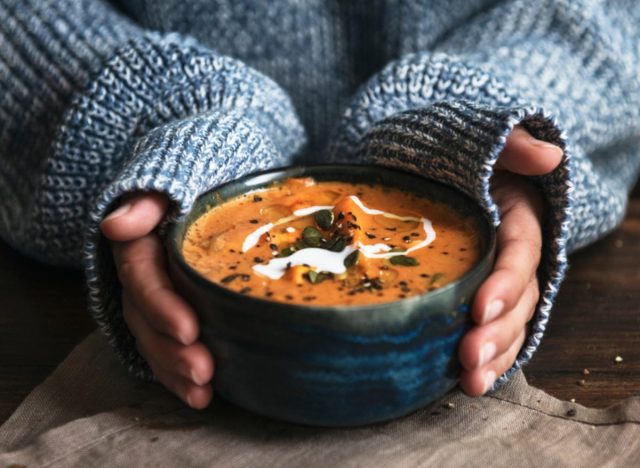People Are ‘Souping’ for Weight Loss & Say It Can Get You a Flat Belly Fast

Let’s be honest: There’s nothing more comforting than enjoying a warm bowl of soup on a brisk autumn day or a cold winter evening. If you’re one of the many soup lovers out there, you can attest to the fact that homemade soup works wonders for the mind and soul. But did you also know that eating soup can help you lose weight? People are souping for weight loss and say it can get you a flat belly.
Whether you’re already on a diet or just kickstarting your weight loss journey, this is likely music to your ears. Eat This, Not That! spoke with Lisa Young, Ph.D., RDN, the author of Finally Full, Finally Slim, a nutritionist in private practice, and a member of our Medical Expert Board, who breaks down the hype surrounding the “souping” for weight loss trend on TikTok. Keep reading to learn more, and for more weight loss inspiration, check out How To Lose One Pound—Adding Up to Gradual Weight Loss That Lasts.
What is souping, and how is it beneficial for weight loss?

First off, what is “souping?” The act of souping means making soups that are packed with nutrients and fiber a regular part of your diet. You can do souping as a cleanse or by simply preparing a healthy soup for one of your meals.
Young explains that, as far as weight loss is concerned, there are several benefits to engaging in souping. “One of which is the ingredients present,” she says. “The combination of various vegetables and legumes increases the intake of fiber and essential nutrients that help support overall health and weight loss. it fills you up with fewer calories than a meal would thus preventing overeating later on. It also helps with portion control as it keeps you satisfied with the consumption of one bowl.”
When making your soup weight-loss-friendly, Young recommends including several key nutrients: protein, vitamins, minerals, fiber, and healthy fats. “Fiber, vitamins, and minerals are essential by incorporating a variety of colorful vegetables,” she explains. “Lean protein such as chicken, fish, or tofu can be added to help promote satiety.”
It’s perfectly fine to eat soup daily, however, make sure you’re feeding your body enough nutrients from it by including healthy ingredients. In addition, beware of soups that are high in sodium in order to avoid developing high blood pressure.
People say souping can help strip away belly fat.

People on TikTok are raving about the weight loss benefits behind souping—some of them even claiming it’s a great way to lose belly fat. Now, it’s important to note that spot reduction—or losing fat in just one area of your body, like your belly—is a total myth. However, a soup that’s packed with the healthy essentials Young mentioned can help you lose weight all over your body, which in turn, can help you lean out your belly.
TikToker @keyforshortt reveals in a soup video, “I lost so much belly fat eating this soup for a week.” The soothing chicken vegetable soup features veggies like carrots, peas, corn, string beans, and spices. In another soup TikTok, @flexwithfatu writes, “This autumn soup will slim your tummy. Butternut squash is one of the healthiest dishes you can add to your lifestyle. It can increase weight loss and flatten your belly, support your immune system, and helps keep your regular fiber requirement.” The recipe calls for butternut squash, yellow onion, garlic, lemon, black pepper, and ginger.
TikTok user Chrisa Life (@chrisalife) shares in an inspiring souping weight loss video that she dropped a whopping 45 pounds in two months by following a certain cabbage soup recipe. The ingredients include items like green bell pepper, cabbage, onions, carrots, celery, garlic, chicken broth, diced tomatoes, and seasonings. Chrisa also reveals it’s an excellent meal prep idea as she portions servings out into glass containers.
So what are you waiting for? With cold weather months around the corner, it’s prime time to hop on the souping bandwagon.









